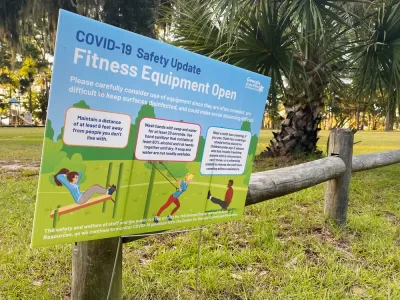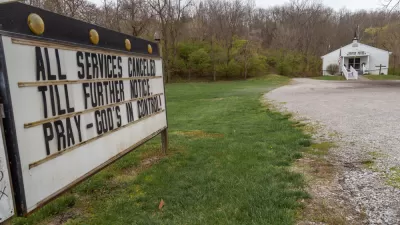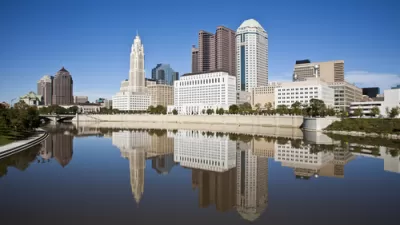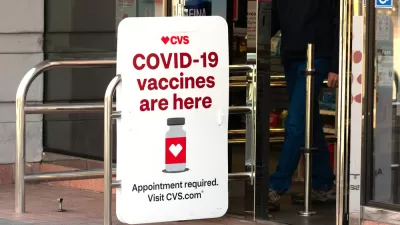Local parks and green spaces that enable safe social distancing have never been more important to people living in cities. The Trust for Public Land has released a new report showing their importance and the challenges they are facing.

"The Centers for Disease Control and Prevention now lists visiting parks and recreational facilities — particularly those 'parks that are close to your home' — as a way to protect yourself and others from covid-19," writes Christopher Ingraham for The Washington Post.
But for tens of millions of Americans, that’s easier said than done; according to the Trust for Public Land (TPL), a nonprofit group that works to protect parks and other outdoor public spaces roughly 100 million Americans don’t have a public park within a 10-minute walk of their home.
“For far too many communities, quality green space where families can recreate and practice social distancing is simply not available,” said Diane Regas, the president and chief executive of TPL.
Ingraham is long familiar with the importance of parks and public health, reporting on studies linking spending time in green spaces with an enhanced sense of well-being and increased happiness. Unfortunately, like so many other urban amenities and necessities, a major problem is the inequitable access to urban green spaces.
Using CDC data, for instance, Brookings Institution researchers found that, at the metropolitan-area level, “regions with lower park access tend to have higher poverty rates.”
Studies also have shown that areas that are whiter, richer and more highly educated also have better access to urban green spaces.
TPL, whose mission includes "creating parks for people, ensuring healthy, livable communities for generations to come," has released a 16-page special report, "Parks and the Pandemic" (free download after agreeing to accept monthly newsletter).
The pandemic highlights that in too many communities, access to the outdoors is considered a privilege when it should be a right. With the data to pinpoint where parks are most needed, we can transform the outlook for outdoor equality across the nation.
Related in Planetizen:
FULL STORY: Pandemic underscores how public parks shape public health

Planetizen Federal Action Tracker
A weekly monitor of how Trump’s orders and actions are impacting planners and planning in America.

Maui's Vacation Rental Debate Turns Ugly
Verbal attacks, misinformation campaigns and fistfights plague a high-stakes debate to convert thousands of vacation rentals into long-term housing.

Restaurant Patios Were a Pandemic Win — Why Were They so Hard to Keep?
Social distancing requirements and changes in travel patterns prompted cities to pilot new uses for street and sidewalk space. Then it got complicated.

In California Battle of Housing vs. Environment, Housing Just Won
A new state law significantly limits the power of CEQA, an environmental review law that served as a powerful tool for blocking new development.

Boulder Eliminates Parking Minimums Citywide
Officials estimate the cost of building a single underground parking space at up to $100,000.

Orange County, Florida Adopts Largest US “Sprawl Repair” Code
The ‘Orange Code’ seeks to rectify decades of sprawl-inducing, car-oriented development.
Urban Design for Planners 1: Software Tools
This six-course series explores essential urban design concepts using open source software and equips planners with the tools they need to participate fully in the urban design process.
Planning for Universal Design
Learn the tools for implementing Universal Design in planning regulations.
Heyer Gruel & Associates PA
JM Goldson LLC
Custer County Colorado
City of Camden Redevelopment Agency
City of Astoria
Transportation Research & Education Center (TREC) at Portland State University
Jefferson Parish Government
Camden Redevelopment Agency
City of Claremont





























